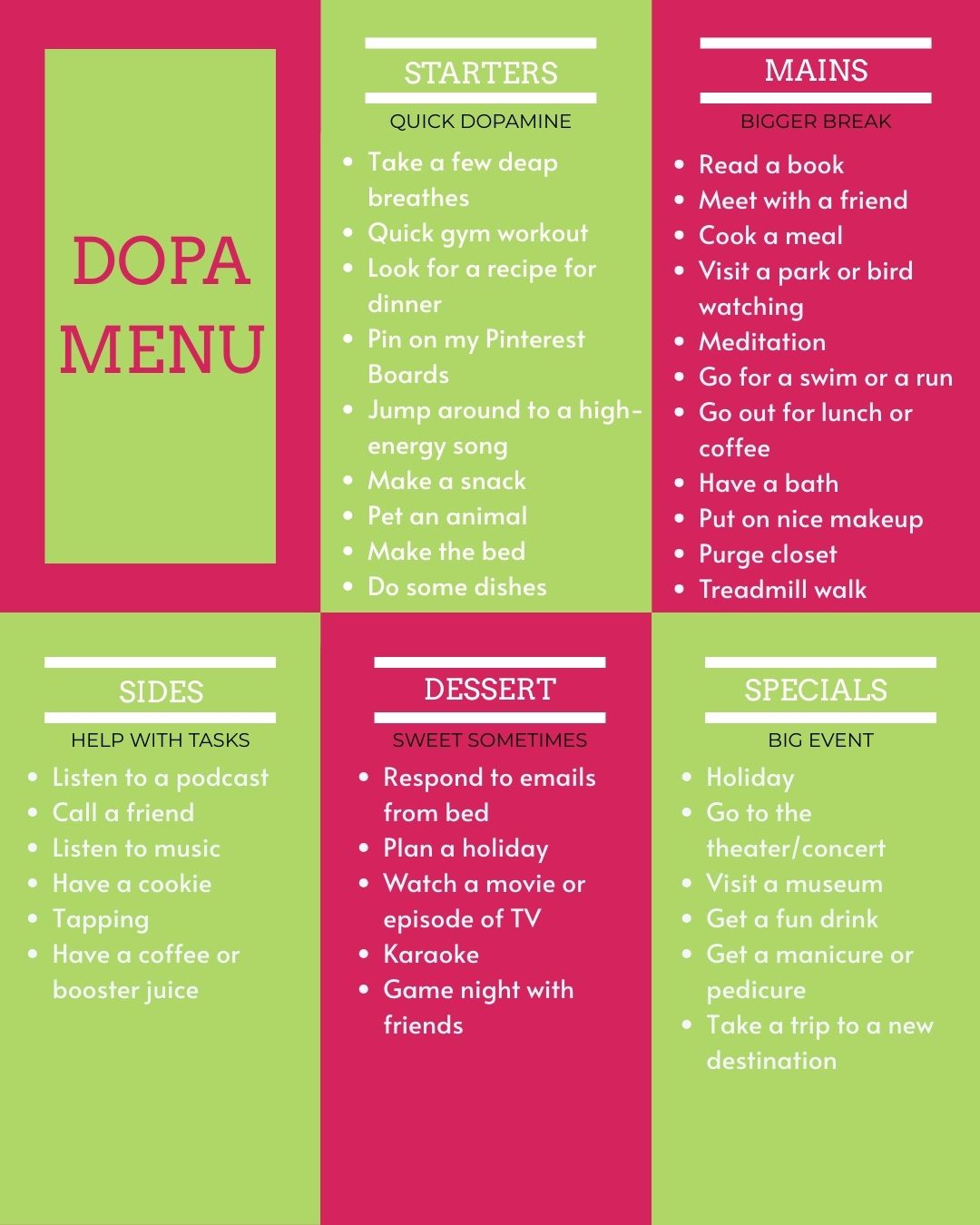What’s Cooking on The Dopamenu?
- Home
- Stories of Hope
What’s Cooking on The Dopamenu?
September 2025Mental Health
A common misconception about recovery is that it only involves abstinence from the addictive substance or behaviour — abstain from that behaviour, and all the other problems in your life will automatically go away.
That, however, isn’t what recovery is about. It is a total upheaval of your previous life, replacing any form of toxicity with healthy habits.
The upheaval usually involves changing your habits, your perspectives, and sometimes even your circle of friends.
The friendship part is almost always met with huge resistance—especially if it’s a circle of friends that has been around for years — but it is ultimately crucial if you’ve been engaging in any of those addictive behaviours with that group of friends.
The hardest thing to do, however, is a total change of life habits. Every person who has tried to kick a bad habit before knows—if you’re trying to eat less sugar, you must use some willpower, find replacements, and perhaps even alter your route in a supermarket so you don’t walk past the sweets section.
It’s the same when it comes to addiction. One could argue that it’s even harder.
When you enter recovery, you’re bombarded with practical tips from counsellors and other well-meaning peers in recovery. While you don’t have to take every tip on board, the sheer number can get pretty overwhelming.
Through the process of trial and error, each person in recovery will eventually arrive at a slate of new habits that work, and stick to them. Those who do not, however, will have a tougher time staying sober — it’s not impossible for them, but it will be significantly harder.
Essentially, those who have developed new habits have curated a menu of habits. It is similar to the concept of developing a Dopamenu.
What is a Dopamenu?
The idea of a Dopamenu was popularized by Jessica McCabe, known for her YouTube channel "How to ADHD" and the book How to ADHD: An Insider's Guide to Working With Your Brain (Not Against It), and Eric Tivers, a psychotherapist and founder of the podcast "ADHD reWired."
A Dopamenu is a personalized list of healthy activities that one can choose from when they need a dopamine boost. While the Dopamenu was conceived to aid those struggling with ADHD, it can also be useful for someone in addiction recovery.
In the days of active addiction, the brain is consistently flooded with dopamine from whatever substance or behaviour that person was addicted to. Without that boost, the brain must work to naturally regain its balance. Regaining balance can take months and, in some cases, years.
While the brain is recalibrating, the person in recovery will experience withdrawal symptoms like depression, anxiety, and anhedonia (inability to feel pleasure).
These withdrawal symptoms are typically the most intense in the early stages of recovery, and if not handled in the right manner, may end up in a relapse. This is why support is crucial, and a Dopamenu offers some of that support.
What’s on the Menu?
This is an example of a menu:

The menu is split up into different courses, like the normal menus you find in restaurants. And as with all food menus, you don’t have to eat everything on the menu.
Take a look, and remember, what works for one person might not work for another, so don't be surprised if your menu looks very different.
You don’t have to create a Dopamenu if you’re in recovery, but it’s useful to have one when the low moments come — and trust me, they will come.
Even if someone enters recovery, it doesn’t mean everything will be fine and dandy. The low points will continue, but the difference is in how they handle those challenging lows.
Instead of reaching for the substance or behaviour, you now have a whole host of activities that you can rely on—a whole menu to feast on!
Events
WE CARE has a support group called “Family and Friends Support Group”.
SMART stands for Self-Management & Recovery Training.
Mindfulness Based Relapse Prevention is an open group to learn and practice mindfulness.


